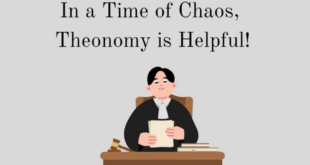Have you ever thought of how mankind has gotten where we have? Better yet, what direction we’re going? That’s what we’re going to tackle in this series. The following is a paper that was written for Belhaven University entitled the Image of God, The Fall, Consequences. This is part 1 of 2:
Understanding humanity’s beginning and how we got where we are today helps mankind to understand our need for a Savior and the overall direction history is moving toward. Scripture gives a complete and accurate explanation of the reality we live in today. The purpose of this paper is to discuss humanity’s creation in the image of God, the fall of humanity to sin, and the consequences of the fall into sin.
In the beginning…
Scripture opens up the narrative describing the creation of humanity in Genesis 1-2. Genesis 1:26-27 English Standard Version states: “ Then God said, ‘Let us make man in our image, after our likeness’… So God created man in his own image, in the image of God he created him; male and female he created them.” The creation narrative continues in Genesis 2:7 that God created mankind out of the dust of the ground and breathed life into him. God eventually made a woman from the rib of the man (Genesis 2:18-23). God gave mankind commands to follow after their creation: to multiply and fill the earth with the image of God (Genesis 1:28), to rule over the earth and subdue creation, to name the animals (Genesis 2:19), and to not eat from one specific tree (Genesis 2:16-17).
There are many observations that can be taken from the creation narrative. In ancient kingdoms, it was customary for a king to build images of themselves and place them throughout their kingdoms. (1) This is an amazing observation because God creates mankind in His image and commands them to take His image throughout the world (also known as the “cultural mandate,” Genesis 1:28). (2) Animals procreate after their own form whereas mankind procreates as the image of God. (3) Differing from the creation of animal life, God breaths life into mankind to bring him to life (Genesis 2:7).
Mankind was to have three offices as their role on earth: king, prophet, and priest over the lower creation. (4) As the office of king, mankind was to have dominion over the lower creation and subdue it (Genesis 1:28). As the office of prophet, mankind was to be God’s emissary and take His word/language into the world. (5) And as the office of priest, mankind was to be God’s presence on the earth. (6)
The Fall
The temptation and fall of mankind are noted in Genesis 3:1-7. A serpent appears in the narrative and begins to tempt the woman, questioning God’s goodness, nature, wisdom, and word. The woman eats the fruit first and then gives the fruit to her husband in Genesis 3:6 (who was also present at the time of the temptation, as a careful reading of the text reveals).
The fall of mankind is closely linked to their failure to fulfill their specific roles. As the office of priest, for instance, the same Hebrew term(7) used in Genesis 2:15 and Numbers 3:7-8 which notes the duties of the priest to keep and guard the garden and temple. (8) When a creature comes into the garden or temple that questions God and incites rebellion against Him, what should the caretaker do? The creature should be seen as an enemy and should be destroyed. Instead, mankind failed to rule over the creation, failed to take the truth of God’s word throughout creation, and failed to crush the head of the serpent that opposes God.
The fall of mankind was multifaceted. Adam (and Eve), did not know God’s Word (as misstating it to the serpent in Genesis 3:3 versus what God commanded in Genesis 2:17). They failed to crush the head of the serpent when He opposed God’s truth. Mankind didn’t trust God and His wisdom but rather sought it through another means (Genesis 3:6). They were enticed by the mere beauty of the fruit rather than the all-satisfying nature of God (Genesis 3:6). Ultimately, mankind did not want to submit to God’s authority but rather “…be like God…” (Genesis 3:5 ESV). This event showed a reversal of the creative order: the serpent turns against the Creator, the woman submits to the creature (serpent), and the husband submits to the wife. (9) Adam failed to lead his wife, as Genesis 3:6 states that he was with his wife when the serpent was tempting her. This multifaceted failure was a rebellion against a Holy King, deserving of death (Genesis 2:17). Although mankind did not physically die at that moment, death entered the creation narrative as a consequence. Mankind, however, suffered from something even worse than physical death: spiritual death and separation from his Creator. (10) Spiritual death would extend throughout the rest of mankind and to all of his descendants.
Follow the next article to see the consequences of the Fall and to understand where this event if pointing us in the future.
Footnotes
1. John Frame, Systematic Theology: An Introduction to Christian Belief, (New Jersey, P&R
Publishing Company, 2013), 785.
2. Frame, Systematic Theology: An Introduction to Christian Belief, 785-787.
3. Frame, Systematic Theology: An Introduction to Christian Belief, 784.
4. Frame, Systematic Theology: An Introduction to Christian Belief, 786.
5. Frame, Systematic Theology: An Introduction to Christian Belief, 787-790.
6. Frame, Systematic Theology: An Introduction to Christian Belief, 790-791.
7. Bible Hub, “Strong’s Concordance: 8104. Shamar,” accessed May 16, 2023, https://biblehub.com/hebrew/8104.htm
8. Beale, G.K., and Kim, Mitchell, God Dwells Among Us, (Illinois, Intervarsity Press, 2014), 25.
9. Frame, Systematic Theology: An Introduction to Christian Belief, 852.
10. Frame, Systematic Theology: An Introduction to Christian Belief, 858-859.
Bibliography
Beale, G.K., and Kim, Mitchell, God Dwells Among Us, (Illinois, Intervarsity Press, 2014).
Bible Hub, “Strong’s Concordance: 8104. Shamar,” accessed May 16, 2023,
https://biblehub.com/hebrew/8104.htm
Frame, John, Systematic Theology: An Introduction to Christian Belief, (New Jersey, P&R
Publishing Company, 2013).
Piper, John, “TULIP Session 4: Total Depravity-Unconditional Election,” accessed May 12,
2023, https://www.desiringgod.org/messages/total-depravity-unconditional-
election-session-4
Piper, John, “TULIP Session 5: Unconditional Election,” accessed May 10, 2023,
https://www.desiringgod.org/messages/unconditional-election-session-5
Sproul, R.C., “Question and Answers #2: Baucham, Nichols, Sproul, Sproul Jr., and Thomas,”
accessed May 17, 2023, https://www.youtube.com/watch?v=drtmCuUJdwM
Third Millenium Ministries, “What is Man? Lesson 4: The Covenant of Grace,”
accessed May 15, 2023, https://thirdmill.org/seminary/lesson.asp/vid/222
 Getting Job-ed
Getting Job-ed


